Incredible life of Gympie man who escaped East Germany
Tragedy, loss, triumph and survival in a life of international adventure that ended with a happy retirement in the Gympie region
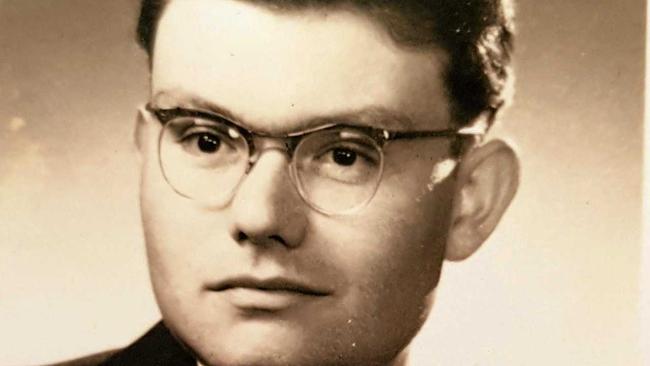
Coffs Harbour
Don't miss out on the headlines from Coffs Harbour. Followed categories will be added to My News.
ERICH Ferdinand Ernst Michalowitz was born as a culturally German Czechoslovakian, on January 5, 1936.
Two years later, when Hitler invaded Czechoslovakia, Erich's village was included in the German Reich (Empire) and its residents became German citizens.
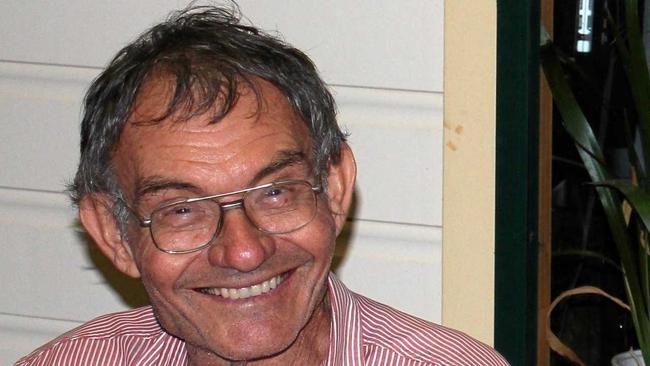
Soon after, Hitler invaded Poland, and Erich's father, was conscripted and sent to Russia, where he was killed in February 1942, at 34 years-of-age.
Following the war, it was decided to remove all the Germans who were living in eastern European countries and send them to Germany.
In June of 1945, the Czech militia came to Erich's house, pointed their guns at them and told them they had one hour to pack 20kg of luggage between them and gather on the village square.
All the Germans were then taken to the next railway station and loaded on to a goods train which took them over the border to the Russian Zone, later known as East Germany, or the German Democratic Republic.
For four months, Erich and his fellow villagers wandered from one village to the next, sleeping in schools or old army barracks, receiving food from locals or eating tinned food which the army had left behind.
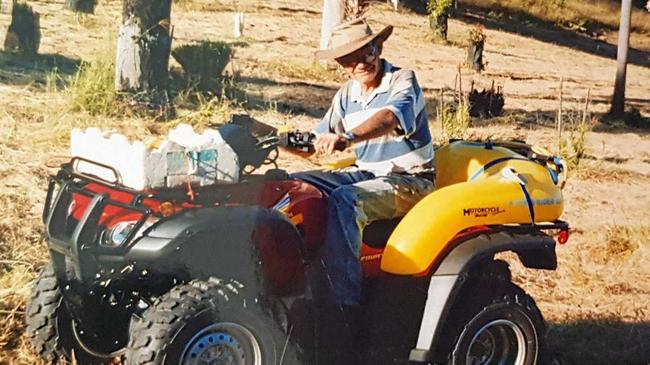
Eventually, they were distributed to different villages, where locals were all required to take in a family of refugees.
For the first five years the food situation was not good, with people in the cities starving. Erich was lucky to live in a village surrounded by productive land, where following the harvest they could scavenge for grain, potatoes and sugar beets which had been left behind.
Erich had seven years of primary education. He loved reading, but sadly many of the books in the school library had been destroyed and replaced by communist propaganda.
Upon leaving school, Erich became an apprentice in a flower and vegetable nursery, and later worked as a concreter.
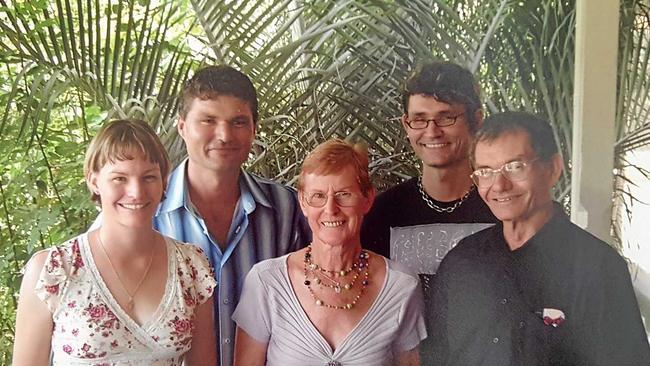
Erich could see that the future in the GDR, which was neither a republic, nor a democracy, was not good.
It was illegal to watch western TV channels, but the authorities could not control the radio. One day Erich was listening to a West German radio station.
One news item was that the Catholic Church was wanting to send volunteers to developing nations. And as he had always dreamed of going to Africa, in November 1960, Erich made plans to leave East Germany.
It was difficult to leave, the border had high fences, mines, and watchtowers.
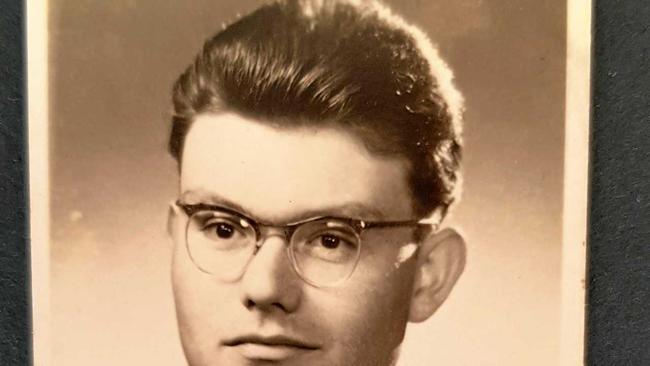
A 5km strip could only be entered by people who lived there. The only safe way was via Berlin.
Because Berlin was divided into American, Russian, French and British zones, and you could go freely from one zone to another, mostly young, working age people made use of this avenue of escape.
The authorities soon tried to stop it by controlling the trains.
The trains were stopped one station before Berlin. Police entered and checked the tickets. If there were two young men with one-way tickets and suitcases, they took them to the police station where they soon confessed what they were up to. They then took away their identity cards, without which, you could not go anywhere.
Erich bought a return ticket to a village beyond Berlin, where he had a friend. When the police checked his return ticket and saw that he had only a briefcase and a camera, they were satisfied and let him go.
He got out in East Berlin, crossed to the West Berlin Railway Station on the subway, and travelled to the town for which he had bought his ticket. After spending a week there, he went back to Berlin, this time getting out in the British Zone.
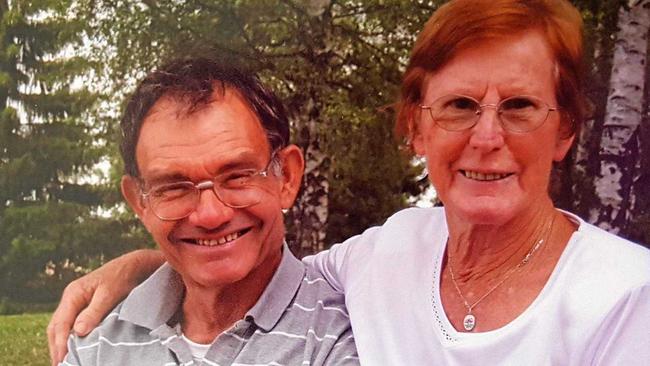
From there he went to an Auffanglager (Transit Camp). After about a month, when enough people had assembled, a British plane took them to West Germany.
Erich then spent one year in Cologne, including a 3 month stay in London to learn English.
Eventually, Erich was offered a job in a mission in Southern Rhodesia, and on his 25th birthday, flew to Africa. The Berlin Wall was built in August 1961, after this, it became much more difficult to leave East Germany.
Erich was sent to a mission run by Dominican Sisters. They ran a teacher training college for girls who could later teach to Year 3 in bush schools, and they also had a secondary school for boys with about 80 pupils, and a school for deaf and dumb children with 60 pupils.
Following his three-year contract, he returned to West Germany, and rented a flat in Ingolstadt with his mother. Here he completed a course as master gardener.
In 1967 he married his first wife Rosina, and in 1968 got a job in an international agriculture project for the German Government.
Markus was born in 1968, and the family moved to Palumpur in Himachal Pradesh, right in the foothills of the Himalayas. Klaus was born in 1970, while they were still in India.
Erich's job was to produce vegetable seedlings and procure fruit trees from nurseries in Uttar Pradesh and reselling them at low cost to the local farmers.
He enjoyed the work and did a lot of hunting for meat, because you could not buy beef.
On one hunting trip Erich had a very serious accident. A shotgun, unknowingly loaded, and being carried by a boy walking ahead of Erich, discharged and he was hit in the upper thigh, and was bleeding heavily.
Erich's companions tied his shirt around his leg, but it was not tight enough and continued to bleed. Erich wrote a message on an empty cigarette packet and sent one boy to take it as fast as possible to the nearby army camp.
The boy ran down to his village and came back with his relatives and a stretcher.
They carried him further down the hill to a dispensary where two nuns were working, but they did not put a proper bandage on. Soon the ambulance from the army camp arrived. They put him in but still did not stop the bleeding. Erich was very weak by this time and expected to die soon.
The matron of the army hospital had a drip assembled and 10 soldiers waiting to match Erich's blood group. He was put on the drip, and the army doctor operated, removing many pellets.
There were still around 80 pellets left behind, but being round, they didn't damage the arteries. The wound healed quickly, but for one year Erich's leg would sometimes collapse.
On 18 April 1974, tragedy struck. Erich's wife Rosina died in her sleep, from a toxic type of jaundice.
Erich and the children remained in India until the end of his contract in June 1975, then returned to Germany.
Back in Germany, Erich met and married Cecilia, which he often said was the best thing he ever did. Miriam was born in May, 1976.
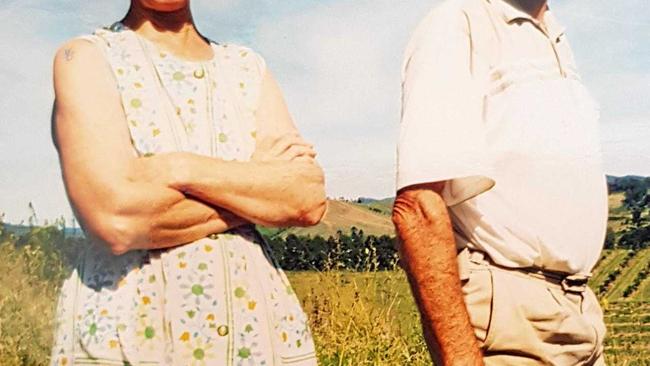
As Cecilia had also spent time in African countries, they decided to go once more to Africa.
In late 1976 they got a job with the German Leprosy Relief Association in Ethiopia, where they had a big hospital in Bisidimo.
A few months into their 3 year contract, they had to leave because the Ogaden war had started between Ethiopia and Somalia, and one night Somali soldiers dressed as Ogaden rebels were firing shots towards the project houses.
After a sleepless night in the bathroom, which was the safest place with only a small window, they decided to leave.
They stayed in Kenya for two months and then were sent by the German international aid agency to a new project at Wau, Agok in Southern Sudan.
The project had some farmland and Erich's job was to grow some food. They were lucky to be there during a time when there was no civil war. Erich enjoyed his time in The Sudan, often saying it was the best time of his life.
They returned to Germany in 1980 when their contract was over and soon decided to migrate to a warmer climate to do some farming.
Erich travelled to Australia to make a down-payment on a farm, then applied for and got a visa. The family arrived in Amamoor in April 1981 and started growing small crops and planting fruit trees.
Erich and Cecilia grew a wide variety of crops on the Amamoor farm, including Chinese cabbage, lettuce, beans, snow peas, Chinese hairy melon, bitter gourd, okra, papaws, mangoes, custard apples, lychees, nectarines and persimmons.
They eventually established one of the largest orchard farms in the area and employed many local people.
They made many good friends during their time at Amamoor and subsequent retirement in Widgee in 2004, many of these friendships endure to this day.
Erich's passion for gardening and plants was reflected in the Widgee property, where he and Cecilia established a productive fruit orchard, vegetable garden, and rock gardens in a park-like landscape.
They sold this property and moved to Gympie in April, 2018. Erich passed away peacefully in his sleep on June 7, 2019, aged 83, and is sadly missed by friends and family.
He is survived by his wife Cecilia, children Markus, Klaus, Miriam and their partners, Tracey, Rowan and Wayne, six grandchildren and three great-grandchildren.
Originally published as Incredible life of Gympie man who escaped East Germany


